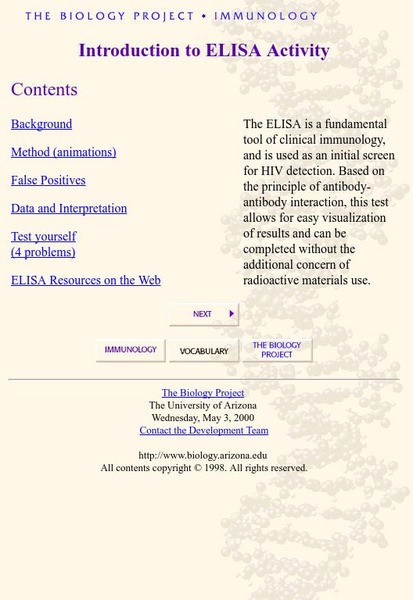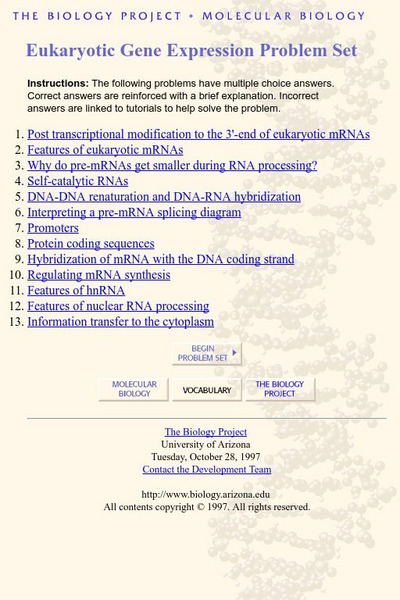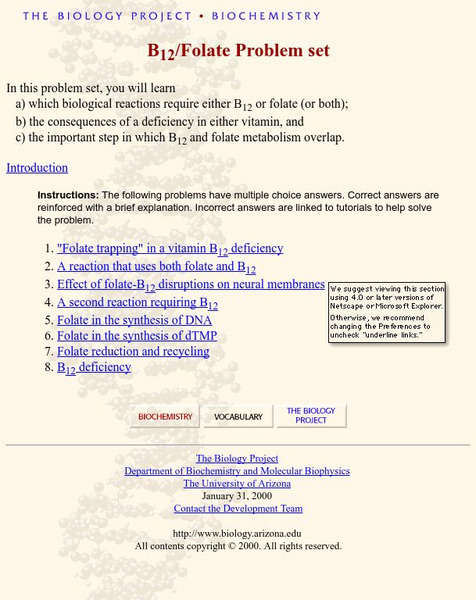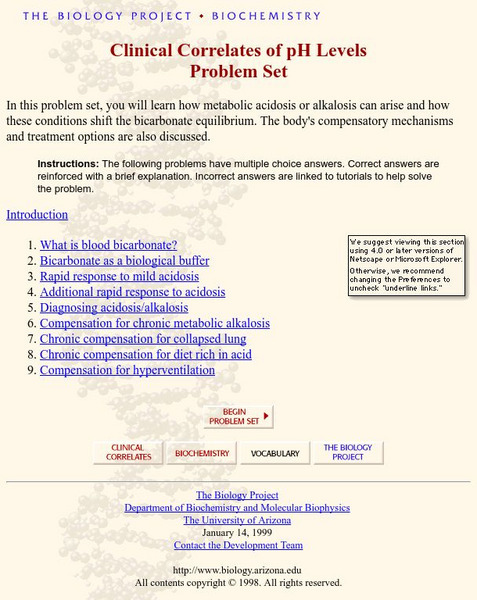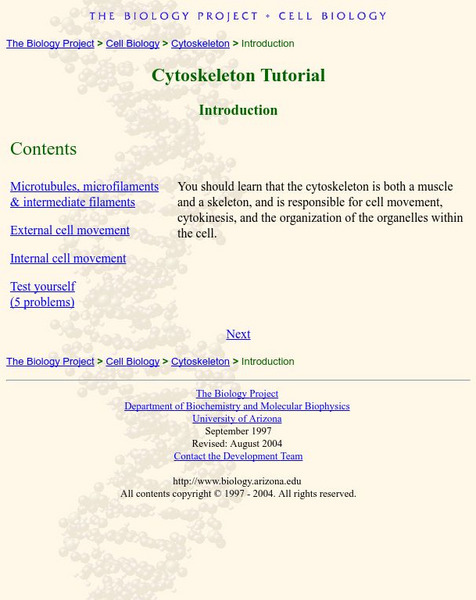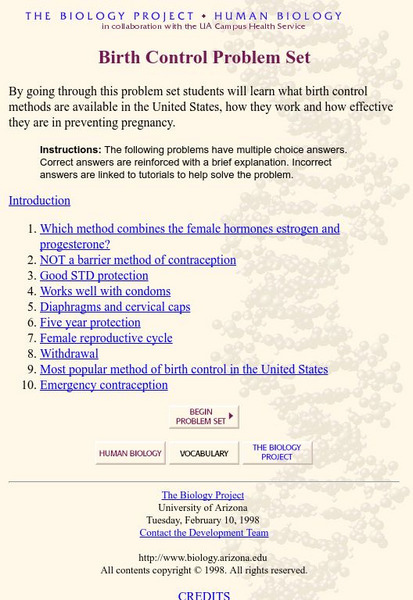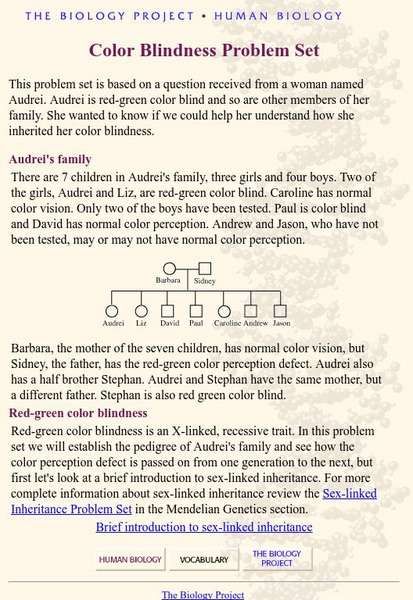University of Arizona
Diasporas: The Great Geographic Dislocations of History
The current population distribution throughout the world is largely based on geopolitical events that have forced groups of people to leave their homes forever. High schoolers learn more about the diasporas scattered around the world as...
University of Arizona
Yoruba Legends: Southern Nigeria
Explore legends and storytelling with your learners. After listening to some legends, pupils work collaboratively and then individually to come up with original legends about animals.
University of Arizona
Skittles & M&Ms Probability Experiment
Students are introduced to the scientific method by hypothesizing, counting, analyzing and concluding which company packs candy more reliably - Skittles or M&Ms.
University of Arizona
The Leg Bone Is Connected to The...
Students discover the names of 13 major bones in the human skeletal system. They construct their skeleton using paper plates and other simple products. Links to templates are provided within the resource.
University of Arizona
The Exotic Vacation
Students explain the concepts and vocabulary of Earth's rotation. They plan imaginary vacations based on the seasons in different locations. This is a very creative lesson plan, which students enjoy.
University of Arizona
The Biology Project: Human Biology: Human Genetics Problem Set
A set of sixteen multiple-choice questions. Once solved, incorrect answers are linked to tutorials to help solve the problem.
University of Arizona
The Biology Project: Human Biology: Sexually Transmitted Diseases Problem Set
This problem set is designed to increase students' knowledge of sexually transmitted diseases (STDs). It identifies the most common contemporary sexually transmitted diseases and describes their symptoms, modes of transmission, and...
University of Arizona
The Biology Project: Immunology: Antibody Structure
A short tutorial illustrating the structure of the antibody, describing how the structure fosters its function.
University of Arizona
The Biology Project: Immunology: Hiv Simulation: Simulating the Spread of Hiv
This web-based simulation demonstrates potential spread of HIV through a population. Each participant exchanges virtual body fluids with other participants, some of whom are HIV positive. A computer-simulated ELISA will illustrate the...
University of Arizona
The Biology Project: Immunology: Introduction to Elisa Activity
Based on the principle of antibody-antibody interaction, this ELISA test for HIV detection allows for easy visualization of results and can be completed without the additional concern of radioactive materials use.
University of Arizona
The Biology Project: Immunology: Introduction to Western Blot Activity
Simulate the Western blotting procedure used to identify specific amino-acid sequences in proteins.
University of Arizona
The Biology Project: Immunology: Eukaryotic Gene Expression Problem Set
Students have the opportunity to work through a problem set over Eukaryotic genes. Correct answers are reinforced with a brief explanation. Incorrect answers are linked to tutorials to help solve the problem.
University of Arizona
The Biology Project: History of the Biology Project
Highly interactive learning materials in the study of biology, used to support the lecture, laboratory, and discussion sessions of general education courses.
University of Arizona
Math Lesson: Calculating Parts Per Million: Do We Have a Problem Here?
Twelfth graders test solutions to determine the parts per million and whether a lake is contaminated.
University of Arizona
University of Arizona: B12/folate Problem Set
This site provides an interactive assessment in which you will learn which biological reactions require either B12 or folate (or both), the consequences of a deficiency in either vitamin, and the important step in which B12 and folate...
University of Arizona
University of Arizona: Chemistry Tutorial
The purpose of this tutorial is to introduce you to some of the chemical concepts which are necessary to understand biology. Concepts include the basics for understanding biology, chemical bonds and attractive forces, the chemistry of...
University of Arizona
University of Arizona: Clinical Correlates of P H Levels Problem Set
In this interactive module, you will learn how metabolic acidosis or alkalosis can arise and how these conditions shift the bicarbonate equilibrium. The body's compensatory mechanisms and treatment options are also discussed.
University of Arizona
University of Arizona: Using Computers to Study Molecular Structure
The main objective for this exercise is to enhance your study of the properties and structures of biological molecules with modern computer graphics. Rather than passively viewing illustrations of molecular structure as they occur in...
University of Arizona
University of Arizona: Cytoskeleton Tutorial
In this interactive tutorial you will discover that the cytoskeleton is both a muscle and a skeleton, and is responsible for cell movement, cytokinesis, and the organization of the organelles within the cell.
University of Arizona
University of Arizona: Meiosis Tutorial
This interactive tutorial is designed to help you understand the events that occur in process of meiosis, which takes place to produce our gametes.
University of Arizona
University of Arizona: Lung Toxicology Problem Set
This interactive module will help you understand the basic anatomy and physiology of the respiratory organs, primarily the lungs. You will learn about lung development, respiratory toxicology, secondhand tobacco smoke, asthma, and lung...
University of Arizona
University of Arizona: Developmental Mechanisms Problem Set
This interactive module introduces students to the basic concepts of development in a variety of organisms. Students will also learn about the experiments that gave scientists in the early 20th century insight into the mechanisms of...
University of Arizona
University of Arizona: Birth Control Problem Set
In this interactive module students will learn what birth control methods are available in the United States, how they work and how effective they are in preventing pregnancy.
University of Arizona
The Biology Project: Human Biology: Color Blindness Problem Set
This problem set is based on a question received from a woman with red-green color blind as well as other members of her family. She wanted to know if we could help her understand how she inherited her color blindness.











